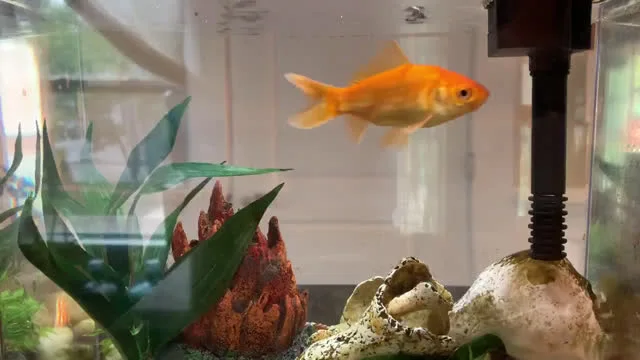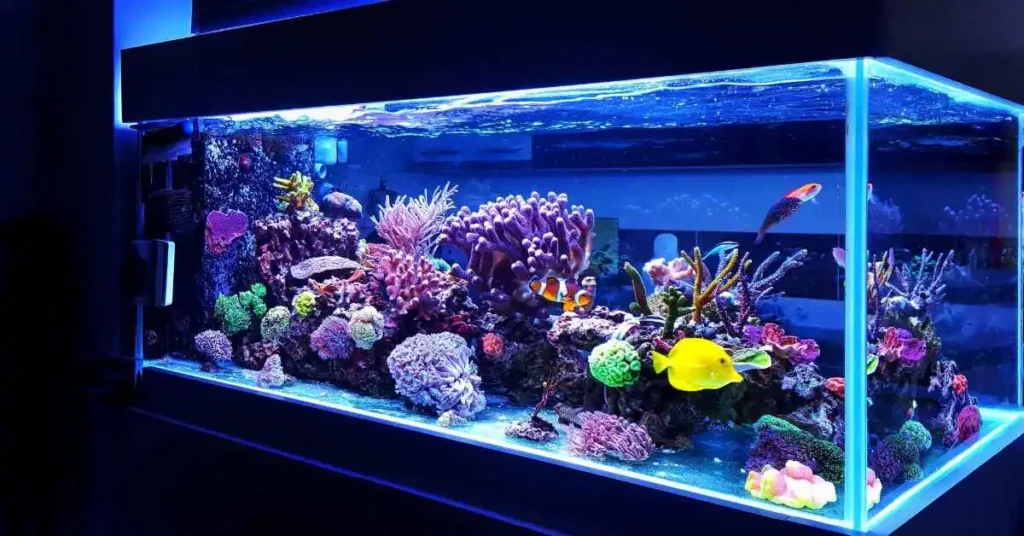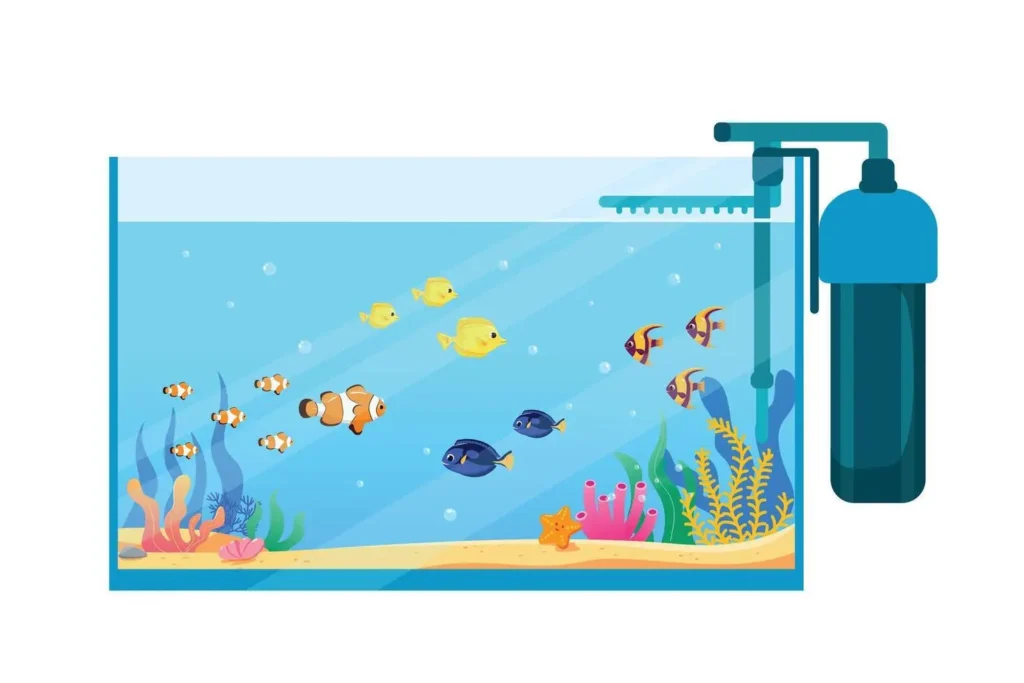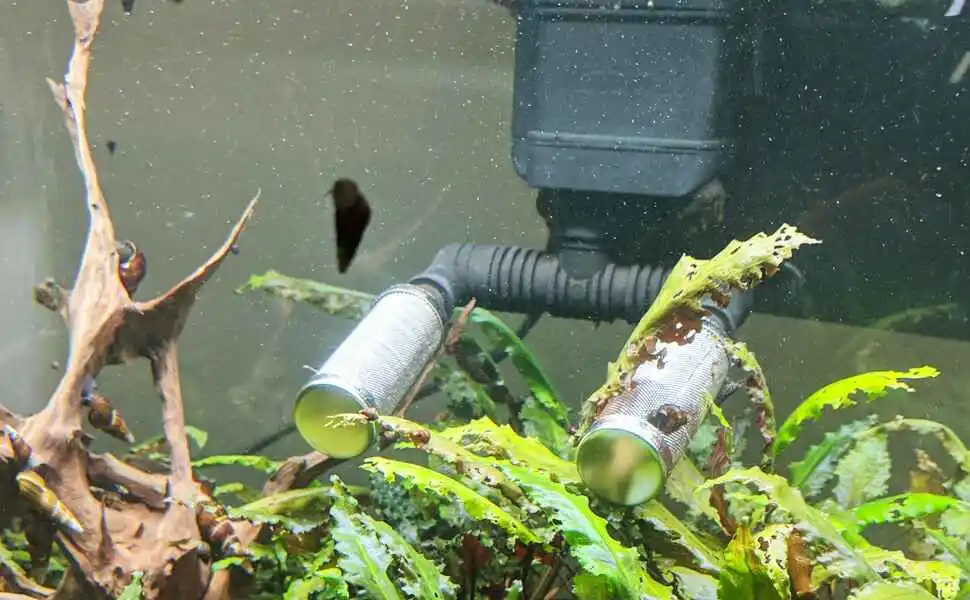A filter can seem more than just water looks clear, as in a complex environment but it is very important for fish living in it. In eliciting, Do fish need a filter to survive? you are inquiring into the degree of the importance of clean water to live fish. Filters are very significant because they move trash and unhealthy things from the water, and this can make fish sick if they stay there. Through this piece, the environmental significance of managing the acidity and where the consequences of both extreme pH levels are examined, not only when it comes to keeping fish and aquariums healthy and alive, but also in the aspect of natural water. We will review the reasons why having a filter is important while considering the effects of the filter on water cleanliness, fish health, and life balance in water.
The Importance of Filtration
The filtration is needed not just for clean water, but it is also super important for the health and happiness of fish as well as other water animals. The basic process is, as nature just naturally does, through the filtration of the water as it flows over small rocks, sand, and lots of plants. A filter of the tank will perform this job by ridding waste of the tank, neutralizing harmful chemicals, and increasing the number of bacteria. Imminent good filtration also can make the water in the tank full of ammonia which their waste causes them stress, illness, and may die. Furthermore, a good filter not only ensures aquarium stability but also provides a calm environment for all species inside, ensuring that every being will flourish and make its own home there.

Do fish need a filter to survive?
Do fish need a filter in order to survive? Actually, In more than 90 percent of cases, the filter is indispensable, and therefore, it is very important indeed, mostly for the aquarist. In the real world, it is rivers, lakes, and oceans that are self-cleaning, and fish benefit from this environment, but the case is different in a home-based fish tank. The fact is that even some fish can survive in contaminated waters or not that much oxygen, though it is not recommended, as their lives become shorter and sadder. Getting the fish tank water filtered works like nature outside that gets rid of waste and oxygenizes the water. That’s why it is not just about feeding the fish but ensuring they are happy and very safe.
5 Reasons Why a Filter is Important For a Fish Tank
1. Maintains Water Quality
The filtration is the most important factor that the justification of the water quality is depended on. It catalyzes both physical and chemical waste product removal from water. If treatment is omitted it can potentially alter the pH levels around the fish and increase the amount of toxins in the environment.
2. Provides Necessary Oxygenation
Filtration helps ensure that the tank is replenished with oxygen, which is a vital process for the fish. They facilitate gas exchange, thus enabling fish to get the sought-after oxygen while removing carbon dioxide from the surroundings.
3. Supports Biological Filtration
The bacteria that form the nitrogen cycle of a tank’s water system thrive in the filter media. These bacteria aid in genes to turn dangerous ammonia and nitrite into non-harmful nitrates thus eliminating the accumulation of toxic substances that could endanger the health of the fish.
4. Helps in Disease Prevention
Filtering water helps maintain it without waste and in that manner reduces the possibility of disease outbreaks from developing in the fish tank. A filter very often helps to keep water fresh and free of the pathogens that cause fish diseases, which is important for maintaining the well-being of your tank environment.
5. Aids in Algae Control
Filtration can maintain the right amount of nutrients in the aquarium, which will regulate the growth of algae. Often, excess nutrients, largely resulting from fish waste and food wastage, can give way to ugly cases of algae bloom. A filter that efficiently traps the waste products in turn boasts the health of algae causing the whole tank to be in good condition by the same.

Natural vs. Artificial Environments
When you review natural water bodies, such as rivers or lakes, and compare these to artificial water locations, like aquariums, you find big differences in how the water is cleaned. In natural settings, it is the ecosystems that have self-care authority. The physical actions include treating the water, chemical reactions are done by adding chemicals to keep it clean, and living organisms also play a role in purifying it. The streams, lakes, and oceans emerge cleaner by themselves through convection, assistance from plants, and the utilization of tiny organisms for the elimination of waste.
Somewhere else, there are no natural processes for the water in aquariums to be cleaned since these man-made places like aquariums lack large, natural systems. Therefore, filters that we help are the great way. These filters act to mimic nature’s processes by removing dirt, changing the water’s chemistry, and producing beneficial bacteria that eat waste materials. Such disparity reveals the crucial role that implemented filters play in preserving the healthy ecosystem in the localities, where nature is unable to do the cleaning autonomously.

Fish Species and Environmental Needs For Fish Tanks
The thing you should pay attention to when you first plan your fish tank is what different fish need to have a happy and nice life. Every kind of fish needs certain water conditions that may be warm or cold and with a particular pH or acidity that goes from about 6.0 to 8.4. For example, bettas and angel fish like water on the warm side, about 76°F to 80°F but goldfishes like kept on the cool side, from 68°F to 74°F. PH level is also relevant majority of fish prefer the medium with a pH level ranging from 6.5 to 7.5, but some require the pH to be acidic or alkaline.
Next to the tank itself, the home experience of the fish is the most important thing that should be considered. This implies the selection of the appropriate kind of covering soil, such as sand or gravel, and the deciding factor for the fish need a filter to survive and species of plants and whether they’ll be swimming around a lot or habituating their favorite spots. The fact that such a pool accounts for the fish’s needs not only increases the fish’s health and reduces stress but also helps the pool to maintain itself more. Filtration systems are critical because they ensure that the water is clean, however, the set-up of the tank should be carefully selected following the type of fish. This helps to establish a provision where everything should live together peacefully which means they will create a balanced habitat for the fish.

What Affects Your Filter Needs
- Tank Size: Rather than a slow accumulation of dirt, large tanks fasten dirt, thus necessitating the use of strong filters to clean the water properly. On the other hand, small tanks often have small filters and get dirty more rapidly.
- Fish Type and Number: The number and the type of fish that you have influenced the way you filter water. When fish emit high wastes, or want very clear water, it means that the filter systems must be better to keep their home in good condition.
- Presence of Live Plants: Plants in the aquarium are beneficial because they give oxygen that plants need and remove carbon dioxide and waste therefore a system may not need as intense of a filter. Additionally, they affect nutrient demands and light availability thus, the appropriate type of filter to be used will digitally be affected.
- Feeding Habits and Food Types: Pouring out excess food creates filth because the wastewater is spread all over, so you will have to build a stronger filtration system on the water.
- Desired Water Parameters: Your fish might require specific water parameters like a certain temperature, pH, or hardness. You are going to have to get its filter; so it can maintain the levels just fine.

Alternatives to Traditional Filtration
Biological Filtration
This type of biofilter applies the good bacteria and plants that clean up dirty water in a tank. It is similar to how nature operates; that is, it gets rid of undesirable things and reproduces what is there naturally. One of the main benefits of biological filtration is that it employs the natural powers of these living things to keep the water clean and healthy without any human involvement in the process, hence, mechanical or chemical ways of filtration are redundant.
Aquaponics System
This is a versatile technique, which fully combines fish farming and the growing of plants in water without soil. In this setup, wasted food is utilized to feed the plants. Finally, the plants clean the water and the fish make use of it again. This loop is a great advantage for the fish as well as the plants as the system is well balanced to produce either food for the fish tank owner or beautiful plants for purely home decor purposes.
Undergravel Filters
This is a very old but also smart method of using the small stones at the bottom of the basin to filter water. S/He goes through the gravel and the good bacteria there clean it by eating the next nutrients. It is important to follow the procedure of letting goos from the gravel because of poisonous gases. It’s just that all things should be looking well-balanced in these cases.
Sponge Filters
These filters are perfect for small tanks or used for breeding fish. Sponge filters clean the water in two processes. Air pumps make water pass through a filtering sponge, where the bacteria of the opposite polarity dwell and clear the water. Here, they are mostly useful for young fish or shrimp tanks where they just gently clean water, so that baby fish do not hide or die because of sudden changes.
Conclusion
While fish need a filter to survive, they will surely live in a dirty habitat and their health may be affected if they don`t have any air pumps. They serve several purposes: to keep the water clean, there should be a balanced amount of chemicals and oxygen required for the fish’s comfort. Although fish in a natural habitat do not have artificially made filters, they do have big filtration systems in the form of a big natural environment; however, the domestic containers are something complicated to copy. Ideally, you utilize filters, care for the tank, understand the needs of your fish species, and thus make it a favorable home for them all.
This is not just about copying from their natural living environment as much as we can, but also facilitating them to live longer and healthier. It’s possible to keep fish alive without using a filter but it won’t be a good idea if having the fish living in beautiful, healthy condition is what we want.
Also Must Read: How Often Should The Carbon Filter Be Changed In a Fish Tank?